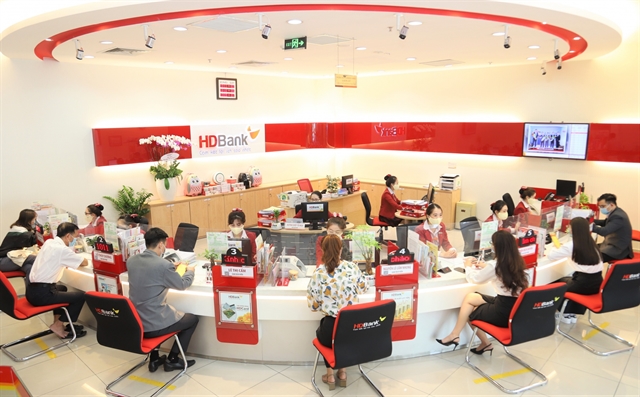The proposal was under SBV’s draft decree on amending and supplementing a number of articles of Decree No. 01/2014/NĐ-CP dated January 3, 2014 of the Government on foreign investors buying shares from Vietnamese credit institutions.

The State Bank of Vietnam (SBV) has proposed increasing the foreign ownership limit for credit institutions that receive the compulsory transfer of weak credit institutions to 49 per cent.
The proposal was under SBV’s draft decree on amending and supplementing a number of articles of Decree No. 01/2014/ND-CP.
Decree 01/2014/ND-CP dated January 3, 2014 of the Government on foreign investors buying shares from Vietnamese credit institutions stipulates that the total share ownership rate of foreign investors must not exceed 30 per cent of the charter capital of a Vietnamese commercial bank.
There are several weak banks in the Vietnamese banking system that are being put under special control and have to undergo restructuring as per the request of the Government. Three of them are Ocean Bank, GPBank and CBbank, which the SBV bought for zero dong. However, seven to eight years after being acquired, the banks are still facing difficulties and there has been no breakthrough in the restructuring process.
The compulsory transfer of weak credit institutions to other credit institutions with powerful capability is therefore hoped to make a breakthrough in restructuring weak banks.
Vietcombank, Military Bank, HDBank and VPBank are the four financial institutions that are reportedly known to either have already stated intentions to such transfer or aim to do so in the near future.
Military Bank and Vietcombank had intended to take over two weak credit institutions, and the plans were given the green light in their shareholders’ meetings this year.
At the shareholders’ meeting in April, Luu Trung Thai, CEO of Military Bank, said the admission of a bank under the compulsory transfer programme is in line with the Government and the State’s policy on restructuring weak banks, and making the banking operation healthier and sustainable. This is a great opportunity to obtain an operational growth rate higher than the average growth rate by 1.5-2 times in the long term, and to improve competitiveness.
Meanwhile, with experience in the successful restructuring of credit institutions and its pioneering spirit, HDBank is getting involved in the compulsory transfer of another weak credit institution after its shareholders voted in large numbers in favour of the plan in a meeting in August.
According to SSI Securities Corporation, the mandatory transfer plan has positive long-term implications for HDBank, even for international investors increasing investment to accompany the bank.
Meanwhile, the management of VPBank has said that the bank is considering the acquisition of a poor credit institution. — VNS





